We rely on our cars to safely get us to our destination. However, problems can occur, such as an engine misfires. A misfire means the fuel/air mixture has failed to ignite in one or more cylinders inside the machine. While there are several possible causes of a misfire, one potential culprit is bad gas.
Which means yes, bad gas can cause a misfire!
However, most fuel-induced misfires aren’t noticed by the driver because the engine goes through a complete cycle quicker than you can blink, so a tiny amount of bad gas can cause a sudden misfire, but the firing order is restored on the next combustion cycle, meaning you as the driver may not even be aware. These types of misfires can happen regularly. Until the misfire is continuous, the check engine light and rough running engine you would associate with a misfire may not be present.
How Can Bad Gas Cause a Misfire?
Most fuel misfires are caused by the injector either not spraying the correct pattern or being blocked, meaning insufficient fuel is sprayed into the cylinder for combustion. A clogged injector caused by poor-quality gas usually happens because the fuel doesn’t contain enough added chemicals like detergents and antiknock agents. Detergents are put into gasoline to stop Sulfur, soot, and gunk buildups from sticking inside the engine, forming larger deposits and blockages.
As a side note, most fuel additives that can be put into the fuel tank, independent of the fuel, combine different chemical detergents that break down and remove such deposits, improving the engine’s efficiency. Just in case you are thinking this, it’s not wise to put an additive in every time you fill the gas tank up; one treatment of fuel additive can last in the fuel tank for many months, and too much will have the opposite effect hardening rubber seals and damaging gaskets in the engine.
Another problem that isn’t particularly common is that the fuel’s octane is lower than indicated at the gas pump. The octane rating determines how much compression the gas can withstand before igniting. A lower octane rating means gas will ignite too early, causing the engine to misfire.
What Causes Gasoline to Go Bad?
Fuel goes bad for several reasons, but regardless of how they go, they usually happen because it is stored incorrectly. Gasoline should be stored in air-tight containers and left in a dry, cool, dark place. Exposure to the elements will cause the fuel to break down quickly.
Age
Old fuel left in a car not driven or kept in jerry cans for extended periods will start to break down; we aren’t talking about overnight either; fuel can last for several months without any change if stored correctly.
With age, fuel goes through a few different chemical changes. The first is oxidization; oxidized fuel loses potency when ignited in an engine, usually noticed as a struggle starting, increased emissions, and poor engine performance under acceleration.
The other is called phase separation, when the ethanol in gasoline absorbs moisture in the air, causing a separation of the gas, water, and ethanol. You get a layer of water at the bottom of the fuel, which is sucked into the engine when running. Water can cause problems for fuel filters, fuel pumps, injectors and cause rust to appear in the fuel lines.
Evaporation
Gasoline can evaporate, although this usually happens when it’s stored incorrectly. Exposure to warm temperatures causes evaporation, leaving a tar-like residue in the fuel. This can stick in a car’s fuel system again, causing fuel starvation or misfires.
Contamination
Like most fluids, gasoline (petroleum) or diesel will absorb dirt, dust, and moisture particles in the air. Any particles absorbed into the fuel will cause blockages in the fuel lines and injectors, resulting in a misfire. They can also change the fuel’s octane rating, which causes problems trying to ignite the fuel. Correct storage of gas will reduce the chances of any contamination.
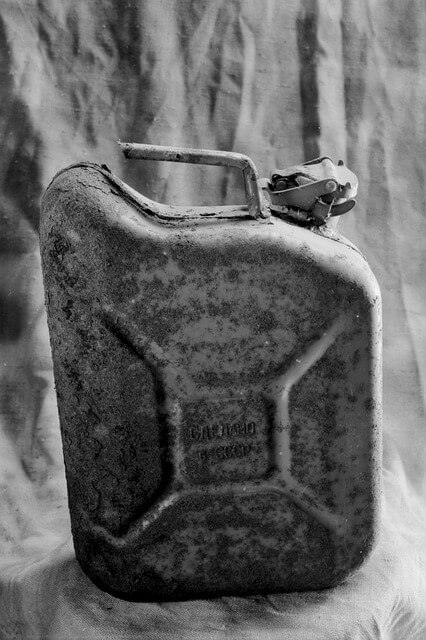
Signs the Gas in the Tank Is No Good
Some of the signs below can indicate your car has bad gas in the tank. The main takeaway from these is the vehicle isn’t running right.
- Reduced fuel economy
- Rough running engine
- Engine stalls randomly
- Check engine light on
- Difficulty starting
- Poor performance
- Engine hesitation on a acceleration
As you can see, it shares similar symptoms with other faults, so unless you know you are using old fuel, it will be tricky to know that gasoline is the problem. In fact, it is rare for gas to cause a misfire; it can happen, but it’s rare to find a gas station giving out poor-quality fuel.
How Do You Fix a Fuel Misfire?
If your engine misfire is caused by bad gas, there are several steps you can take to remedy the problem:
- Drain the Fuel Tank: If you suspect bad gas, you must first drain the fuel tank completely. This will remove any contaminated fuel and prevent further damage to the engine. Gasoline is a hazardous substance, so it needs to be disposed of correctly.
- Replace the Fuel Filter: A clogged fuel filter can also cause a misfire. If you suspect bad gas, replacing the fuel filter is a good idea to prevent any debris from entering the engine.
- Add a Fuel Additive: You can add a fuel additive to your gas tank to help remove any contaminants and impurities causing the misfire. Look for products specifically designed to clean fuel injectors and improve engine performance. However, do not use these with every tank of gas!
- Refill: After draining the fuel tank and replacing the fuel filter, refill the tank with gasoline from a reputable gas station. Be sure to choose the correct octane rating for your vehicle.
- See a mechanic: If the misfire persists after these steps, you must have a mechanic inspect the car. This might be step 1 if you’re not mechanically minded. A professional mechanic can diagnose and repair any underlying issues causing the misfire, such as faulty spark plugs or ignition coils.
Can a Misfire Be Caused by Something Other Than Bad Gasoline?
Misfired are common occurences in modern engines, they usually indicate a component has failed. The most common causes for engine misfires are:
- Spark plugs faulty
- Coil packs broken down
- Blocked catalytic converter
- Electronic sensor failed
- Head gasket leaking
Conclusions
To answer, can bad gas cause a misfire? The answer is yes, it can, although it’s not that common. The leading causes for gasoline-induced misfires are because the gas is old or hasn’t been stored correctly and used. Unfortunately, if your car contains old gas, the best thing to do is have the fuel tank drained, cleaned, and refilled with fresh fuel. If that doesn’t work, the problem will be something else and require further inspection.

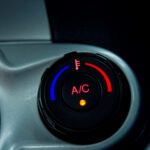


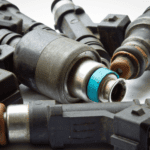
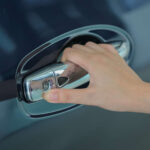
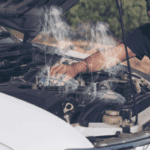
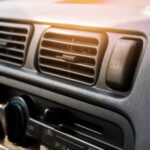
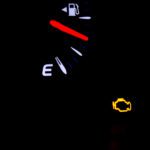
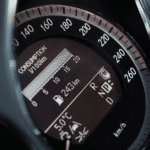
Thank you for advice. i will start with the bad gas option. i’ve installed TPS sensor MAP sensor and Idle control se sensor. new coil pack with NGK plugs. it will run about 2000 rpm, but the moment i let of the gas, it dies. could that be bad gas or something else
Thanks for your question. Based on the information, there could be one of a few different issues. While bad gas is possible, I doubt it, especially if you can get the car running. I suspect there could be an issue with the fuel delivery, such as a failing fuel pump or injector issue. Another possibility is that there could be a vacuum leak, causing the engine to run poorly when the throttle is closed. Have you plugged the car into a diagnostic machine to check what is happening?
Regards
Tommy
carsneedcare.com